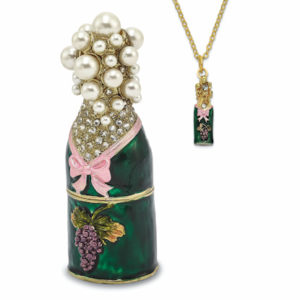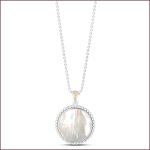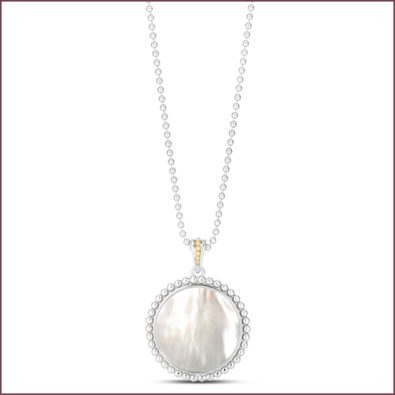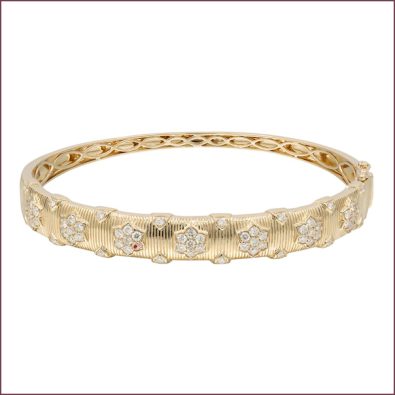Your Customers’ Shoes
To gain more insight into how customers engage with your brand, try seeing things from their point of view. Walk with them through all your touch points, across channels to ensure your message is clear, cohesive and consistent.
 Look at things from the customers’ perspective, their actions, goals, questions, and challenges. From packaging and visual merchandising to ecommerce and social media engagement, being creative with how you think about these touch points in the customer experience can yield inspired results.
Look at things from the customers’ perspective, their actions, goals, questions, and challenges. From packaging and visual merchandising to ecommerce and social media engagement, being creative with how you think about these touch points in the customer experience can yield inspired results.
The key is in coordinating and integrating the touch points so they seamlessly meld together. Taking the time to look at your touch points not just as isolated mini-experiences, but as a collective whole will help you shape them for a better customer experience, and perhaps reveal opportunities to invent new ones.
In the Package
More than a container, packaging has become an important element of the marketing mix, communicating a brand’s identity, values and promise to consumers at the point of sale and delivering throughout the product experience.
Packaging is meant to communicate a purpose: what your brand stands for and what it means for your customer. Packaging is a powerful tool because it tells consumers why your product and brand are different.
An essential component of a brand’s value and shopper’s experience, packaging is a trigger for what you are creating in your store and the emotional responses that elicits. “Packaging is the sizzle, the steak is what’s inside,” says Mike Kaplan, Rocket Redbox, Elmsford, New York, who notes that in a crowded field packaging is a way to stand out.
A little detail that makes a big impression, packaging should be treated as an integral part of your marketing strategy that helps to define who you are as a brand with your customers, says Denise Cabrera, product manager, display and packaging for Rio Grande, a Richline brand based in Albuquerque, New Mexico. “Packaging is a way to extend the care you take in creating your jewelry into a memorable experience for your customers.”
 Color and name are the leading ways to customize packaging. Lighter, more uplifting colors are in play, reports consultant Andrea Hill for the Chicago-based Hill Management Group. “People see enough negativity, they don’t need anything dark from retailers. Your color scheme and messaging should reflect the joy of life and giving, and the idea of love.”
Color and name are the leading ways to customize packaging. Lighter, more uplifting colors are in play, reports consultant Andrea Hill for the Chicago-based Hill Management Group. “People see enough negativity, they don’t need anything dark from retailers. Your color scheme and messaging should reflect the joy of life and giving, and the idea of love.”
With Kraft and natural fabrics growing in popularity in packaging, neutral tones of these materials are in fashion because they make it easy to incorporate a brand’s color palette with tissue or ribbon, says Cabrera. Special details like bows, tissue and labels make a jeweler’s packaging unique.
Sharon Pisciotta for Quality Gold’s GemPak in Dallas, Texas, hails packaging an important opportunity to include special touches, like note cards, coupons, event invitations, gift wrap, and gift with purchase. Small efforts of customization go a long way to make the experience distinct.If the packaging is nice people will save it, notes Kaplan. “A beautiful box becomes a keepsake. A nice store bag gets reused. Packaging continues the experience outside of the store.”
Visual Merchandising
Your retail space has to be your most productive salesperson, and how you optimize that real estate for maximum revenue is through visual merchandising. Include signage and imagery, and digital touch points like looping videos, tablets to explore custom design options, or QR (Quick Response) codes to scan for rich product content. Customers tend to linger longer at such displays, says Hill. “Not everyone wants to talk to a sales person. Layering the physical and virtual worlds is great way to promote your omni-channel message.”
 There are ways to make digital technologies work with a retail location, says Cabrera. “As more customers discover brands in a digital space, the retail store experience can complement that initial contact. Retail stores are finding ways to translate the cornerstones of the experience at their physical stores into a digital space and utilizing digital technologies to enhance their in-store experience.”
There are ways to make digital technologies work with a retail location, says Cabrera. “As more customers discover brands in a digital space, the retail store experience can complement that initial contact. Retail stores are finding ways to translate the cornerstones of the experience at their physical stores into a digital space and utilizing digital technologies to enhance their in-store experience.”
Mixing traditional display elements with non-traditional items is a key design direction—think jewelry draped on glass bottles, old books or whimsical pincushions. “Textured fabrics such as linen and burlap continue to be popular,” says Cabrera. “Natural tones are in fashion, but I also see more demand for gray. Many brands are using materials like wood and metal in existing displays.”
Pisciotta cites a new trend for colorful tiles on top of risers, and bejeweled trinket boxes like those from its Luxury Giftware by Jere brand in a variety of whimsical motifs. Add-on sales, these trinket boxes also serve as decorative elements in a showcase.
Color is impactful in display as well. “There’s a perception that jewelers are stodgy and formal, which may work for some, but is not reflective of today’s society,” says Hill. “The men’s smoking room look is dying out. Dark colors are not in, especially at a time when people are looking for hope and joy.” She says a mix of in and above case presentations is essential to engage customers.
Vendor Partnerships
With digital technology rapidly changing, jewelers who want to compete today must have a compelling e-commerce platform. Manufacturers are stepping up their digital offerings to help jewelers create a strong online presentation with virtual inventory and customizable options.
To support an omni-channel approach, retailers benefit from working with vendor partners they can leverage technology, inventory, images, content, and fulfillment to meet the quick response desire from consumers today, says Jay Gerber for the diamond jewelry manufacturer, WR Cobb, East Providence, Rhode Island.
Among the must haves in your omni-arsenal, Gerber cites a “Design Your Own” platform, as demand for customization is on the rise; and 3D imaging and diamond magnification capabilities, as customers like researching and examining styles and stones in a non-intimidating way online before going into a store. He notes that jewelers must be omni-channel and mobile responsive.








